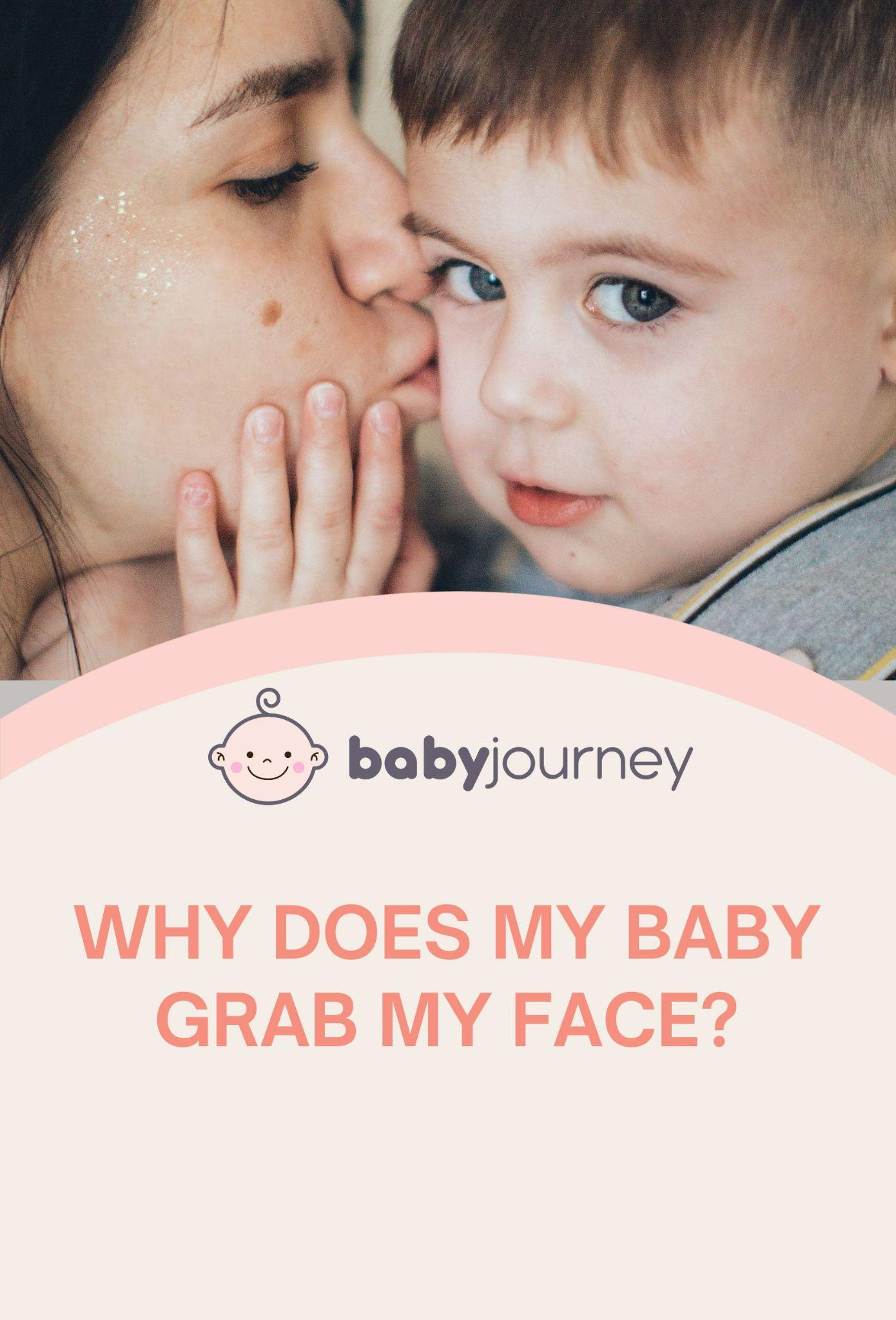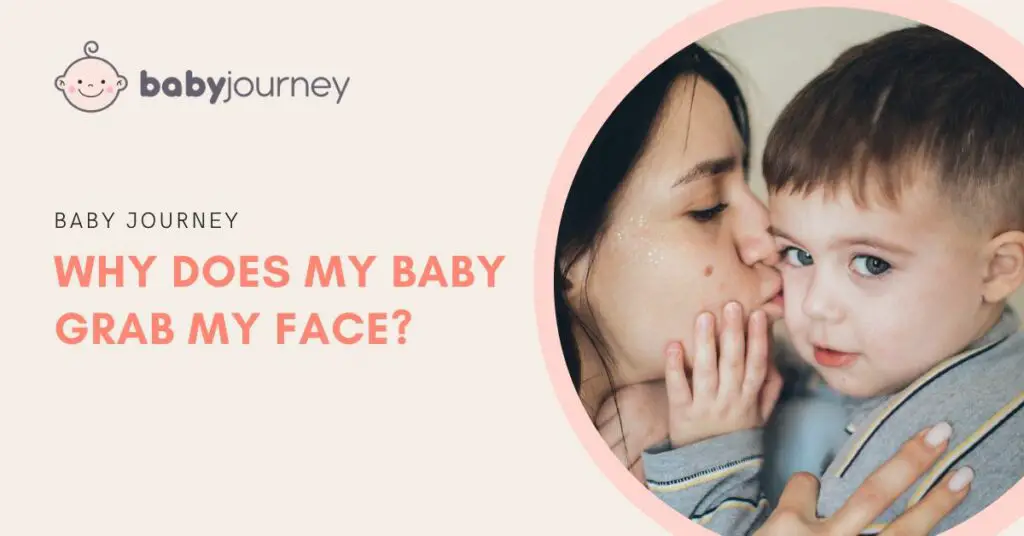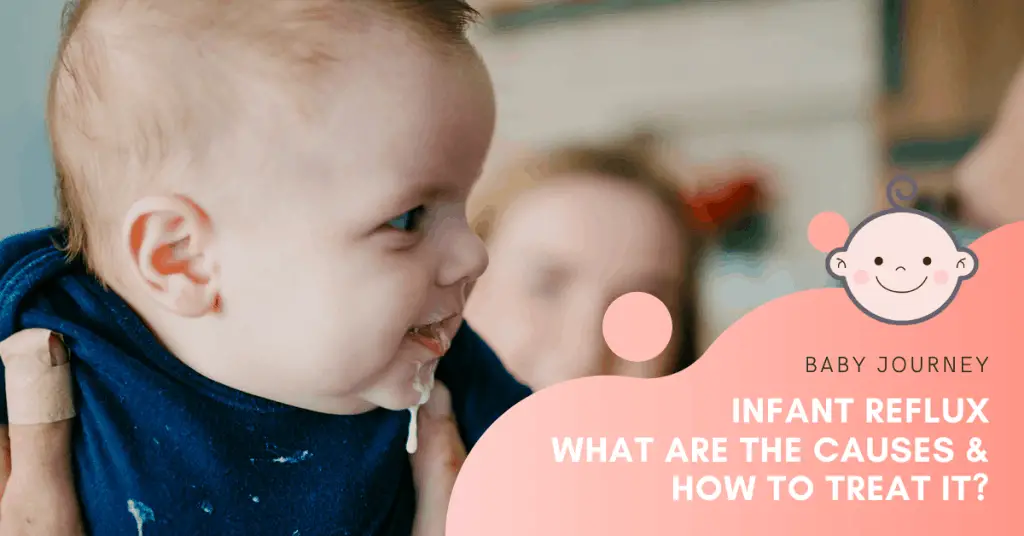Babies are known for their adorable and often unpredictable behavior, and one common action that parents may notice is their baby grabbing their face. While it may seem strange or even make little one uncomfortable at times, this behavior is completely normal for young babies and can have a variety of different meanings.
One reason why a baby might grab their parent’s face is to get their attention. Babies are not yet able to communicate with words, so they may resort to physical touch as a way to express their needs. By grabbing their parent’s face, they are able to directly make eye contact and communicate their desire for attention.
Another reason why a baby might grab their parent’s face is simply out of curiosity. Babies are constantly exploring their environment and using their senses to learn about the world around them. By grabbing their parent’s face, they are able to feel the contours and textures of their skin, which can be a fascinating sensory experience for them.
Understanding Baby’s Actions
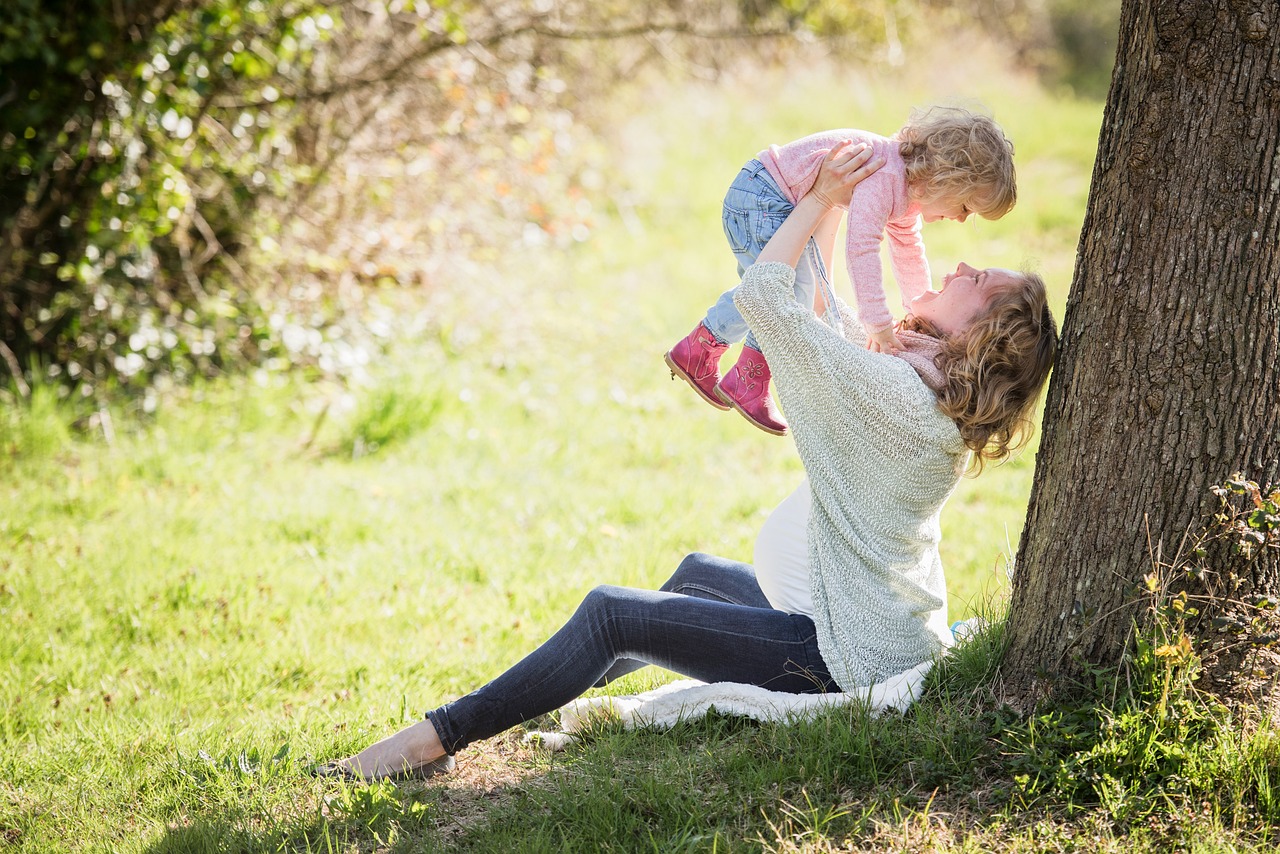
Babies explore and learn about their surroundings through various actions, including grabbing and touching. As a parent, it is essential to understand why your baby might grab your face and what it means for their development.
Exploring with Hands
One of the main reasons why babies grab your face is to explore their environment. Babies are curious and want to touch and feel everything around them. They use their hands to explore the texture, shape, and size of different objects, including your face. By grabbing your face, they can feel the contours, textures, and movements of your skin, which helps them understand their surroundings better.
Role of Touch in Development
Touch is one of the most critical senses for a baby’s development. It helps them learn about their environment, communicate, and build relationships. When babies grab your face, they are using touch to communicate and build a connection with you. They are also learning about cause and effect, as they realize that grabbing your face elicits a response from you.
Moreover, research shows that touch is essential for a baby’s emotional and physical development. It helps them feel secure, calm, and loved, which is crucial for their overall well-being.
In conclusion, babies grab your face for various reasons, including exploring their environment and using touch to communicate and build a connection with you. As a parent, it is essential to understand these actions and provide a safe and nurturing environment for your baby to explore and learn.
Emotions and Expressions
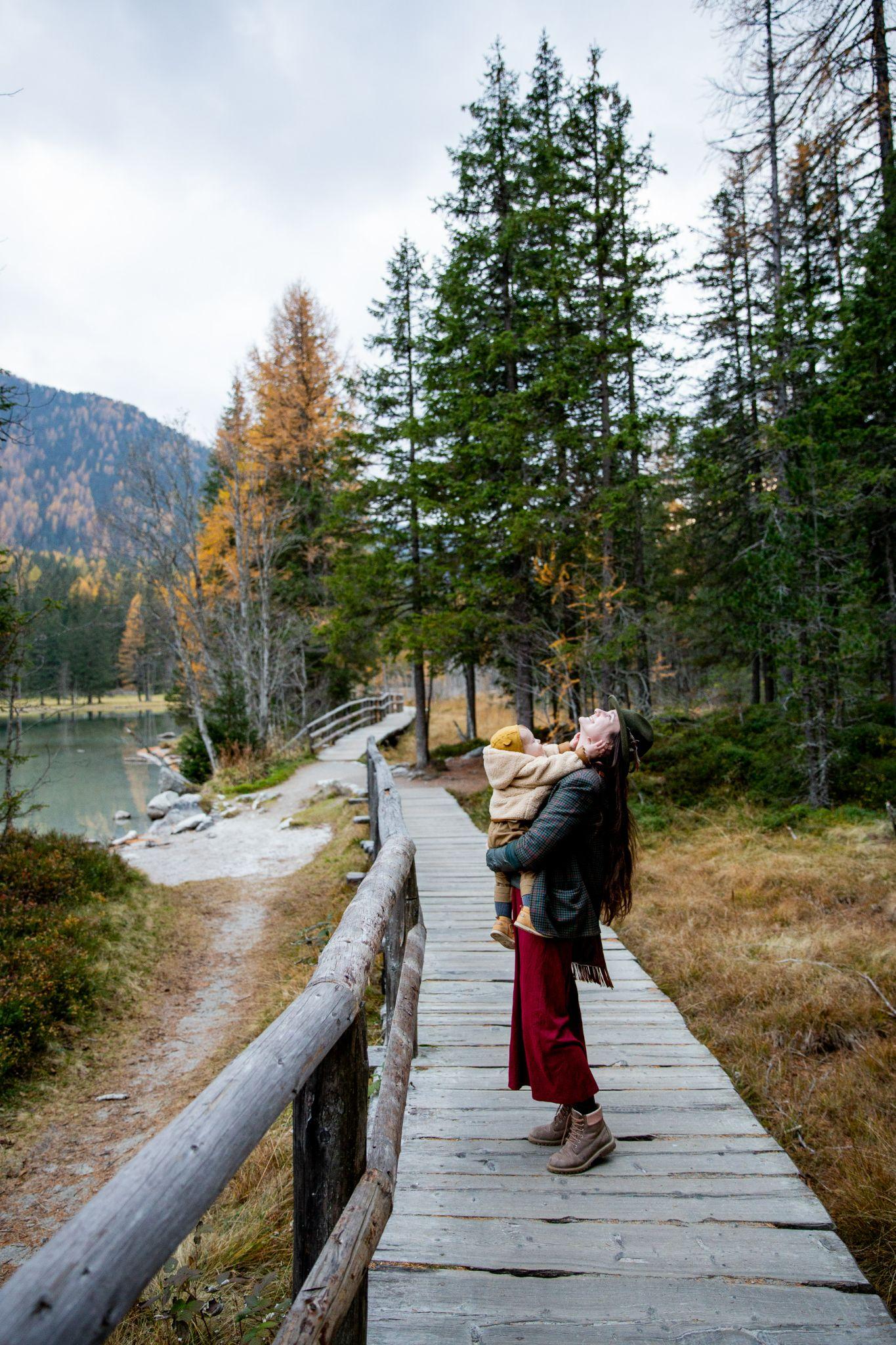
Babies are known for their non-verbal cues and body language. One of the ways they express themselves is by grabbing their parents’ faces. This behavior can be a sign of various emotions, including joy, love, comfort, frustration, and anger.
When a baby grabs their parent’s face, it can be a way of seeking attention and expressing their emotions. It is a non-verbal way of communicating that they want to be noticed and have their needs met. Parents should respond to their baby’s non-verbal cues by giving them attention and providing comfort when needed.
Babies can also grab their parent’s faces as a sign of love and affection. This behavior is often seen when a baby is happy and content. They may grab their parent’s faces as a way of showing their love and appreciation for them.
Sometimes, a baby may grab their parent’s face out of frustration or anger. This behavior can be seen when a baby is upset or angry about not getting their way. Parents should try to understand the reason behind their baby’s behavior and respond appropriately.
In conclusion, a baby grabbing their parent’s face is a common behavior that can be a sign of various emotions. Parents should pay attention to their baby’s non-verbal cues and respond accordingly to provide comfort, love, and attention when needed.
Communicating Needs
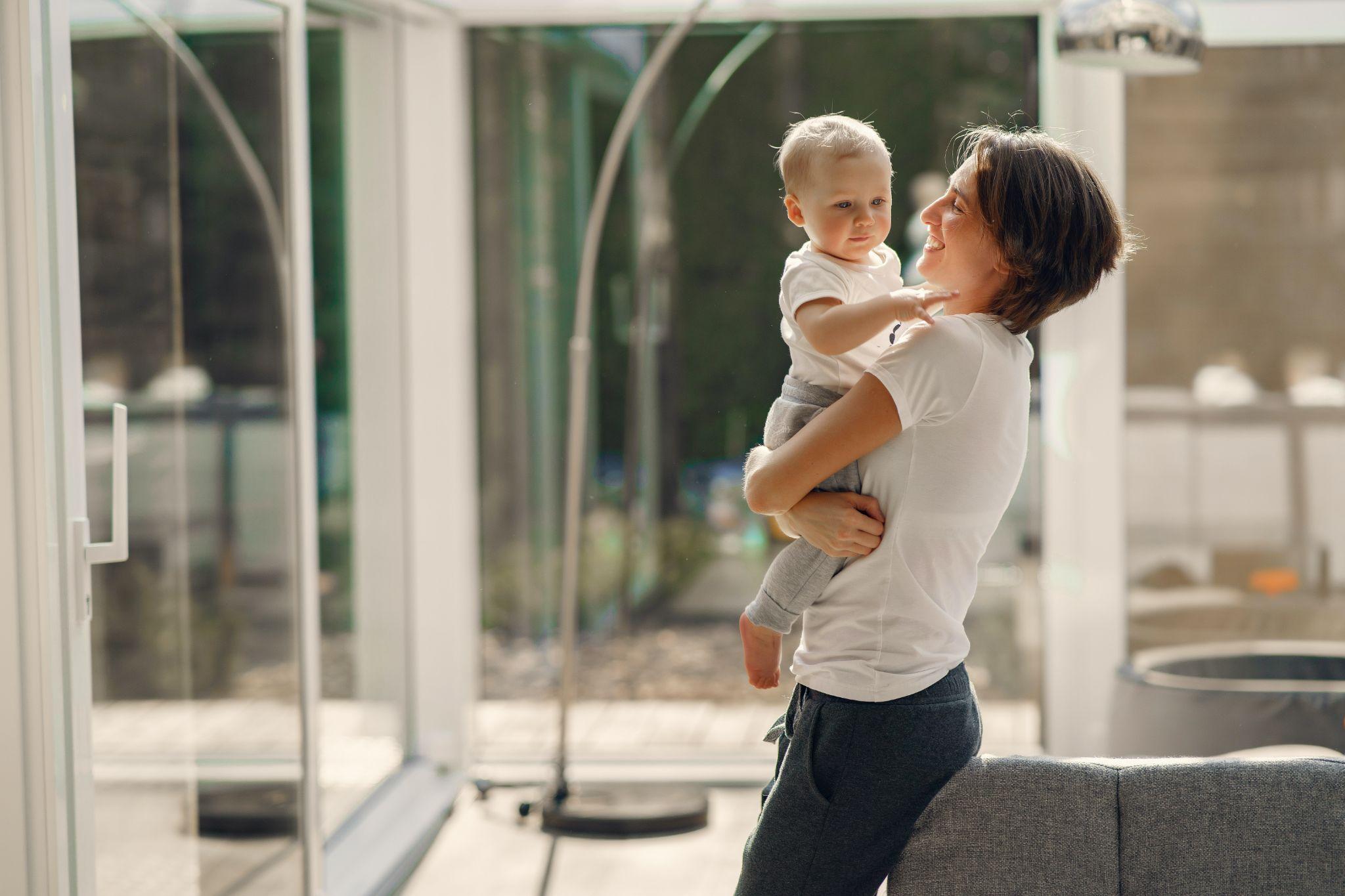
Babies have a limited way of communicating their needs. They cannot talk, so they use other methods to convey their messages. One of these methods is grabbing their parents’ faces. This behavior might seem odd, but it is actually a way for the newborn baby to get the attention of their parents.
When a baby grabs their parent’s face, it is usually a sign that they need something. It could mean that they are hungry and need to be fed, or it could be a sign that they are tired and need to sleep. Sometimes, a baby might grab their parent’s face just because they want to feel close to them.
Parents should pay attention to their baby’s behavior and try to understand what they are trying to communicate. If a baby is grabbing their parent’s face, it is important to respond to their needs. This could mean feeding them if they are hungry, or putting them to sleep if they are tired.
Communication is key when it comes to understanding a baby’s needs. Parents should try to establish a routine for feeding and sleeping. This will help the baby understand when it is time to eat or sleep. It will also make it easier for parents to anticipate their baby’s needs.
When a baby is hungry, they might grab their parent’s face and turn towards their nursing or bottle. This is a clear sign that they need to be fed. It is important to respond to this need promptly to prevent the baby from becoming fussy or upset.
Similarly, when a baby is tired, they might grab their parent’s face and rub their eyes. This is a sign that they need to sleep. Parents should try to establish a consistent sleep routine to help the baby understand when it is time to sleep.
In summary, grabbing a parent’s face is a way for a baby to communicate their needs. Parents should pay attention to their baby’s behavior and try to understand what they are trying to communicate. Establishing a routine for feeding and sleeping can help make it easier to anticipate the baby’s needs.
Exploring Textures

Babies are naturally curious and love to explore their environment through their sense of touch. One of the ways they do this is by grabbing and touching the faces of their parents or caregivers. This behavior is entirely normal and is a sign that your baby is developing and learning about the world around them.
When babies touch their parent’s faces, they are discovering different textures. They may enjoy feeling the smooth skin of their parent’s faces or the roughness of their beard. As they touch and explore, they are learning about the different sensations that different textures can create.
In addition to exploring textures, babies may also put their hands in their mouths to explore objects further. This behavior is also normal and helps babies learn about the world around them. As babies grow and start teething, they may also use their hands to soothe their gums by chewing on their fingers or toys.
As parents, it is essential to encourage your baby’s natural curiosity and exploration. You can do this by providing them with age-appropriate toys and objects that are safe for them to touch and explore. By doing so, you are helping your baby develop their sense of touch and learn about the world around them.
In conclusion, when babies grab their parent’s faces, they are exploring textures and learning about their sense of touch. This behavior is entirely normal and should be encouraged. As parents, it is essential to provide your baby with safe objects to explore and encourage their natural curiosity.
Safety Measures
When a baby grabs your face, it can be a cute and endearing moment. However, it’s important to make sure that the environment is safe for both the baby and the caregiver. Here are some safety measures to keep in mind:
Safe Environment
Make sure that the environment is safe for the baby to explore. Remove any hazardous objects or substances that may be within reach. Keep sharp objects, chemicals, and medications out of the baby’s reach. Use baby gates to block off stairways or any areas that may pose a risk to the baby.
Safety Precautions
When a baby grabs your face, it can sometimes lead to scratches or cuts. To prevent this, caregivers can have younger babies wear mittens or gloves to protect their face. Additionally, keep the baby’s nails trimmed to prevent accidental scratches.
Protection
Babies are curious and love to explore their surroundings. However, this can sometimes lead to accidents. To protect the baby, make sure that they are always supervised. Use safety locks on cabinets and drawers to prevent the baby from accessing dangerous objects.
Proper Care
Babies require proper care to ensure their safety and well-being. Make sure that the baby is fed, changed, and well-rested. Follow the recommended guidelines for safe sleep, such as placing the baby on their back to sleep.
Overall, it’s important to be confident and knowledgeable about safety measures when caring for a baby. By taking the necessary precautions, caregivers can ensure a safe and secure environment for the baby to explore and grow.
Understanding Developmental Milestones
As babies grow and develop, they go through various developmental milestones that are important for their overall growth and well-being. Pediatricians often use these milestones as a way to track a baby’s development and ensure that they are meeting their developmental goals.
One of the earliest milestones that babies achieve is the development of reflexes. Newborn babies are born with several reflexes, such as the rooting reflex, which helps them find their mother’s breast for feeding, and the grasping reflex, which causes them to grip onto objects placed in their hands.
As babies get older, they begin to develop more advanced skills, such as coordination and motor skills. They learn to roll over, sit up, crawl, and eventually walk. These milestones are important for their physical development and help them explore their environment.
Another important milestone is the development of social skills. Babies learn to interact with others and develop relationships with their caregivers and family members. They learn to communicate through gestures, facial expressions, and eventually, words.
It’s crucial to keep in mind that every baby develops at their own rate, and some may reach milestones sooner or later than others. However, if a baby is significantly delayed in achieving certain milestones, it may be a sign of a developmental delay and should be evaluated by a pediatrician.
In conclusion, understanding developmental milestones is crucial for parents and caregivers to ensure that their baby is developing properly. By tracking these milestones and seeking help if needed, parents can help their baby reach their full potential.
Dealing with Unwanted Behaviors

Dealing with unwanted behaviors can be a challenging task for parents, especially when it comes to infants and toddlers. Babies are still learning how to communicate, and sometimes they resort to grabbing their parent’s face or hair to get their attention. Parents should stay calm and try to understand the reason behind their child’s behavior.
One of the reasons why babies grab their parent’s faces is to seek attention. Babies can’t talk, so they use touch to communicate. If a baby is feeling scared or frustrated, they may grab their parent’s face to seek comfort and reassurance. Parents can try to provide alternative options for their child to touch, such as soft toys or blankets, to redirect their child’s behavior.
Another reason why babies may grab their parent’s faces is that they are playing. Babies love to explore their environment, and grabbing their parent’s face or hair can be a way of discovering new things. Parents can try to redirect their child’s behavior by providing toys or other engaging activities.
Toddlers may also grab their parent’s faces or hair out of frustration. Toddlers are still learning how to express themselves, and sometimes they resort to biting or hair-pulling to release their frustration. Parents should try to stay calm and redirect their child’s behavior by offering alternative options for their child to fidget or play with.
If a toddler throws a tantrum or exhibits aggressive behavior, parents should stay calm and avoid reacting with a sharp, loud noise or punishment. This can further escalate the situation and make the child more upset. Instead, parents should try to understand the reason behind their child’s behavior and offer comfort and reassurance.
In some cases, a child’s behavior may be due to fear or the fear factor. Parents should try to identify the source of their child’s fear and offer comfort and reassurance. Swaddling or holding the child close can also provide a sense of security and comfort.
In summary, parents should try to stay calm and understand the reason behind their child’s behavior when dealing with unwanted behaviors. Offering alternative options, redirecting their child’s behavior, and providing comfort and reassurance can help address the issue.
Conclusion
Babies grabbing their parents’ faces is a common behavior that can have different meanings depending on the age and stage of development of the child. As babies grow and learn new ways of communicating, they may use touch as a way of expressing their needs and emotions.
One reason why babies grab their parents’ faces is to get attention. Babies learn quickly that grabbing their parents’ face can be an effective way of getting them to pay attention to them. This behavior is particularly common in babies around 8 months old who are developing their motor skills and exploring the world around them.
Another reason why babies grab their parents’ faces is because they are seeking sensory input. Babies are naturally curious and want to learn about their environment through touch, taste, and other senses. Touching their parents’ face can provide them with a new and interesting sensation that they want to explore.
It is important for parents to understand that grabbing their face is a normal behavior for babies and does not necessarily indicate any underlying problems. However, if parents are concerned about their child’s behavior or development, they should consult with their pediatrician.
In summary, babies grabbing their parents’ faces is a normal behavior that can have different meanings depending on the age and stage of development of the child. Parents should not be overly concerned about this behavior but should be aware of its possible causes and seek advice if they have any concerns.
Frequently Asked Questions
How can I stop my baby from grabbing my face?
It’s important to remember that babies grab faces as a way of exploring and interacting with the world around them. It’s a natural behavior and not something that needs to be stopped. However, if you find that your baby’s face grabbing is becoming too rough or uncomfortable, you can gently remove their hand and redirect their attention to a toy or activity.
What does it mean when a baby wants to touch your face?
Babies often touch faces as a way of seeking comfort and connection with their caregivers. They may also be trying to learn more about the world around them by exploring different textures and sensations.
Why do babies touch their face?
Babies touch their face for a variety of reasons, including exploring their environment, seeking comfort, and developing their motor skills. It’s a normal and healthy behavior for babies to engage in.
Is it normal for a baby to grab your face?
Yes, it’s completely normal for babies to grab things and faces as a way of exploring and interacting with the world around them. It’s a natural behavior that is part of their development.
What should I do when my baby grabs my face?
If your baby grabs your face, you can gently remove their hand and redirect their attention to a toy or activity. It’s important to remember that babies are still learning and exploring, so try not to take their grabbing personally.
Why does my baby grab my mouth while breastfeeding?
Babies may grab their mother’s face or mouth while breastfeeding as a way of seeking comfort and connection. They may also be trying to get a better latch or adjust their position while feeding. If you find that your baby’s grabbing is becoming too rough or uncomfortable, you can gently remove their hand and redirect their attention to the task at hand.
